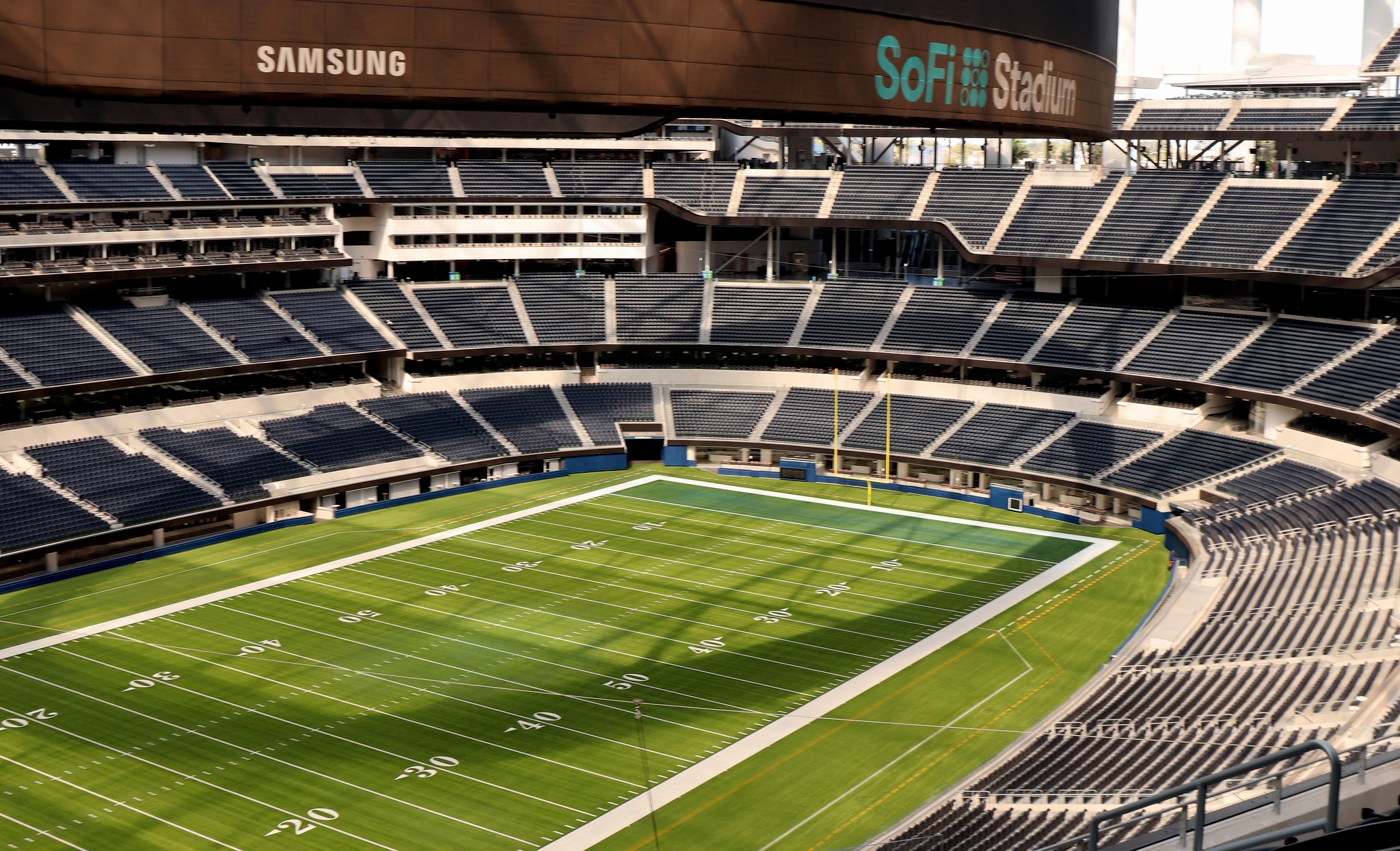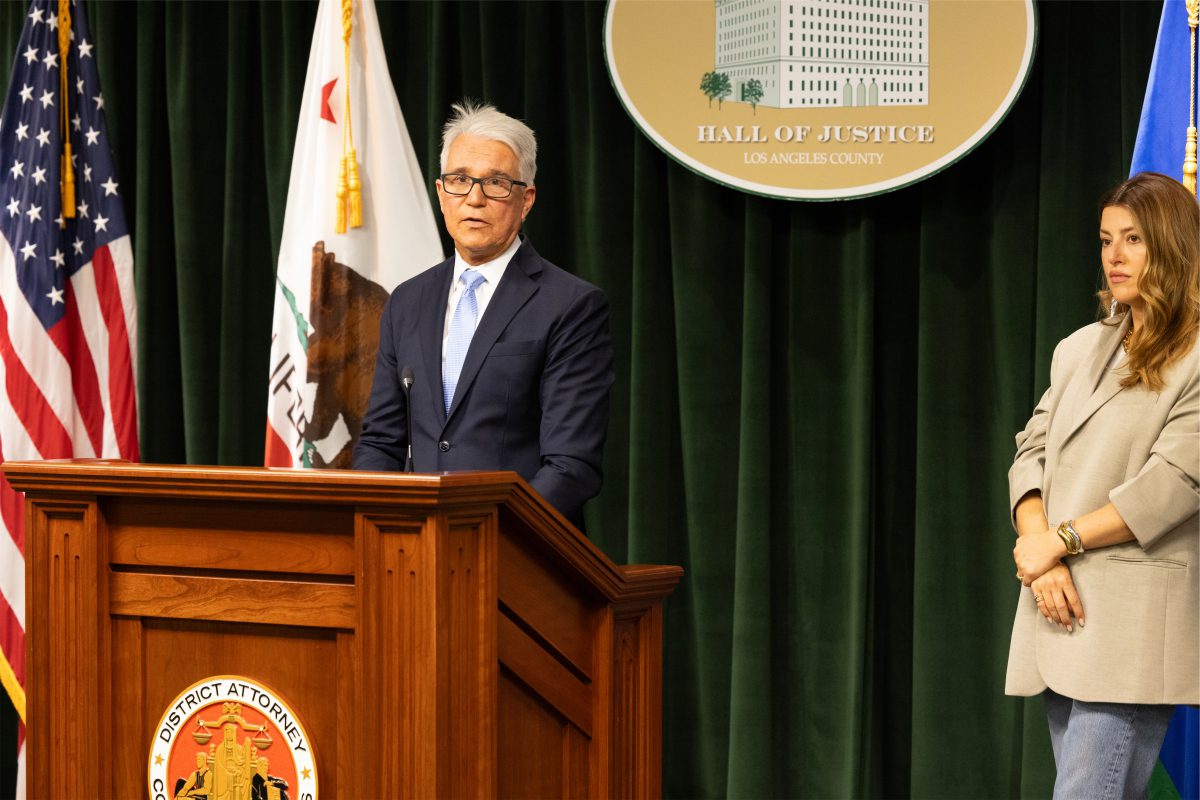One of five men charged in the beating death of a young man whose body was found on the side of a mountain road in the Angeles National Forest near Azusa was sentenced Wednesday to 25 years in state prison.
Andrew Williams, 24, pleaded guilty April 21 to one count each of voluntary manslaughter and robbery, three counts of kidnapping and eight counts of assault with force likely to cause great bodily injury — all involving the May 2018 attack on Julian Hamori-Andrade.
Los Angeles County Superior Court Judge Lisa Lench noted that Williams had gotten himself into a bad situation, and “made the best choice you could out of a bad situation.”
The judge said she would recommend that state prison officials consider placing Williams — who had testified during the trial of one of his co-defendants — in protective custody
The victim’s mother Desiree Andrade told the defendant that she wanted to thank him for testifying during the trial of his co-defendant Matthew Capiendo who was convicted Nov. 16 of first-degree murder and kidnapping.
“The decision to be a witness was huge on your part, but know you did the right thing. You told the story that Julian couldn’t tell. You were Julian’s voice and for that I have a lot (of) respect for you — weird to say, but I do,” the victim’s mother said, speaking directly to Williams. “I am proud of you for taking full responsibility for your actions. As hard as it was to hear all the gruesome details, the truth brought some closure.”
She said she wanted the defendant to know that she forgives him, hopes he forgives himself and gets an education while he’s in state prison.
“You’re young enough to change your life around. You never know — one day your story can help someone else,” the victim’s mother said.
The victim’s sister Jasmine Hamori-Andrade told Williams that he was “the reason my brother got justice.”
Outside court after the hearing, defense attorney Robert Nadler said, “I thought that the victim’s mother’s statement was one of the most beautiful things I’ve heard in a courtroom in over 30 years. I’m very optimistic that my client’s going to serve his time and come out and have a positive life. He has tremendous family support.”
Williams was among four defendants who pleaded either guilty or no contest in connection with the killing before the case went to trial.
Hercules Dimitrios Balaskas, 24, pleaded no contest on the eve of trial to first-degree murder and was sentenced in October to 25 years to life in state prison.
Francisco Amigon, now 24, was sentenced to 11 years in state prison and Jacob Hunter Elmendorf, now 24, was ordered to serve six years behind bars after the two pleaded no contest in September 2021 to voluntary manslaughter.
The 20-year-old victim’s body was discovered May 30, 2018, in heavy brush about 30 feet down a hill alongside Highway 39 in Azusa Canyon, according to the Los Angeles County Sheriff’s Department.
Authorities said he was beaten at Capiendo’s home in the 6100 block of Goodway Drive in the Azusa area, where authorities found a large pool of blood on the floor two days earlier. Hamori-Andrade was then driven to Azusa Canyon, where again he was beaten and thrown over the side of the road, according to investigators.
Capiendo — who the prosecution contended was the mastermind of the beating death — is facing life in prison without the possibility of parole. He is set to be sentenced Feb. 2.
Along with the murder and kidnapping charges, jurors found true the special circumstance allegations of murder while lying in wait and murder during the commission of a kidnapping and murder during the commission of a robbery, as well as an allegation that Capiendo personally used a deadly or dangerous weapon.
The panel acquitted Capiendo of a separate robbery charge involving the same victim.
Deputy District Attorney Sarika Kim said after the verdict that Capiendo planned and initiated the attack, directed the victim to be moved to Azusa Canyon, engaged in a group beating there and climbed down the edge of the canyon after the victim was pushed over to “finish him off” in the words of one of his accomplices.
Capiendo allegedly told the other defendants that the victim had stolen marijuana from him, but there was no proof of that, according to the prosecutor.
Defense attorney Anthony Garcia had urged the jury to reject the special circumstance allegations and to consider the lesser count of second- degree murder, which would have made Capiendo eligible for parole.







